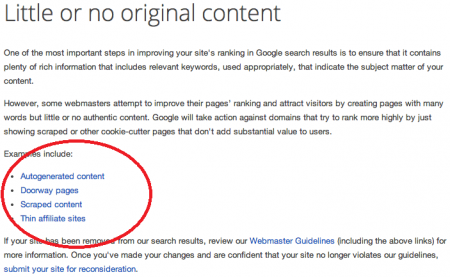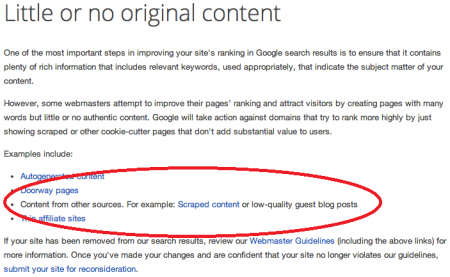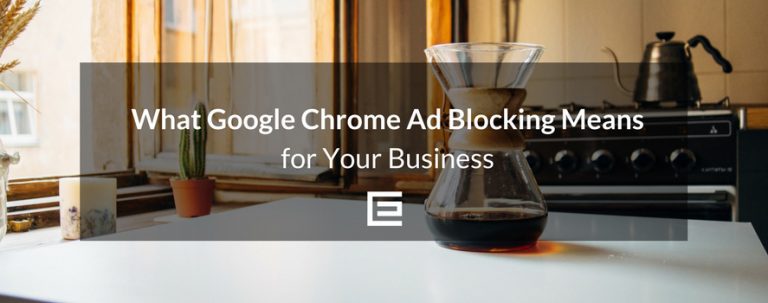Google’s Webmaster Guidelines Update
On January 20, 2014 Matt Cutts, the head of Google’s Web Spam Team wrote an entry in his personal blog explaining Google’s stance on guest blogging. You can read the entry here. His article can be summed up with the following quote, “Stick A Fork In It, Guest Blogging Is Done”. In the 7 months since that time Google has penalized numerous guest blogging networks and websites that frequently feature guest blog posts. However, despite Matt’s writing on his personal blog and the actions taken against individual sites and networks, Google has not updated their Webmaster Guidelines to inform Webmasters about these changes through an official channel – until now.Webmaster Guidelines Before & After
On August 12, 2014 Brian Ussery, an SEO consultant from Atlanta, Georgia noticed a change to the Google Webmaster Guidelines clarifying that sites with “low-quality guest blog posts” can now be penalized or de-indexed for having Little or no original content. You can view the page before and after the changes below.

What Does This Mean?
Well, this raises two important questions: “What is a high-quality guest blog post?”- A high-quality guest blog post should contain 100% original words that have never appeared anywhere else on the internet.
- It should not be written solely for the purpose of inserting a link (or many links) onto a website.
- It should be truly helpful to the audience reading it and relevant to the website it is being posted on.
- It should contain at least 300 words, but 1500 words is better.
- No. With so much risk of penalization by Google it no longer makes no sense to feature guest blog posts on your website or to write guest blogs for other people’s websites.
Want to let us take care of your web design and SEO? Contact the WordPress experts at TheeDigital in Raleigh, NC at 919-341-8901 or schedule a consultation.
Tags: Digital Marketing • Google




